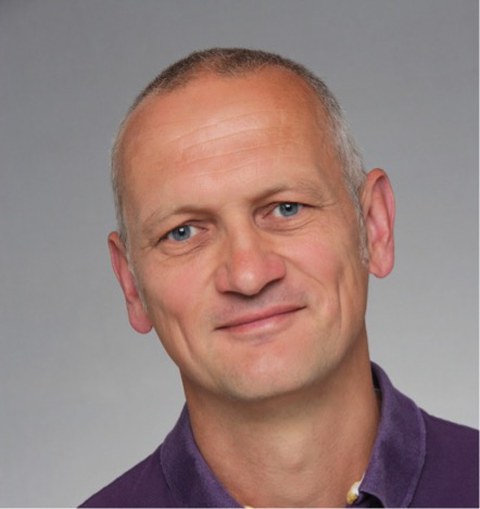Oct 16, 2023
Life as a Scientist - Interview with Prof. Reinhardt

Professor Klaus Reinhardt
Hello Prof. Reinhardt, please introduce yourself and tell us about your research topic.
I am Klaus Reinhardt, Professor of Applied Zoology. Together with Prof. Oliver Zierau, I feel as one of the fathers of Biology in Society. My group’s research looks into reasons of male infertility, I am simply fascinated by sperm biology. Specifically, we look why and how and which environments affect which aspects of sperm function.
What is one important thing you have discovered during your career as a scientist?
Empirically, I like our discovery that a unique immune organ evolved in female bedbugs because of sexually transmitted microbes; insects don’t usually have proper immune organs. However, I prefer to think about concepts and here I should like to hope that my ‘invention’ of sperm ecology might leave a tiny, if only temporary, mark in evolutionary and sperm biology.
What do you like most & least about your job?
Most I like the freedom, the amazing chance that I can think about things that may make people think differently, the incredible salary and that I discovered in our M.Sc. course “Biology in Society” just how good teaching feels if you can explore new things.
Like most academics, I really dislike the ever-increasing administration and especially that it is not driven by a need but by bureaucrats that create league tables, reports, data bases, information sources etc. whose only purpose seems to compare people, labs, universities, institutes or countries, and to show off how excellent everyone is. This is a deplorable waste of taxpayer's money on our salaries. And I don’t like it very much that sometimes students seem to find it more comfortable to being told “xyz is a fact”, rather than sharing my thoughts on how to get to this statement.
Important question to an entomologist: What is your favourite insect and why?
I like all eight million or so species! Ok seriously... at work I like bedbugs because whenever we do research on them, we discover something unexpected. And I know so much about them. I like dragonflies because they are beautiful and I know their biology quite well - whenever I see a certain species, I immediately know that this is a good habitat I am in. I have their biology, rarity etc. in mind - this big mosaic of knowledge feels great. And lately I discovered scale insects for myself - probably because most of the time that you find a species or find out things about them it is a new discovery. Even in our Bachelor course ‘Insects’ this happens a lot.
If you could not be a professor, what job would you like to do, and which research field would you choose apart from Biology?
I think I would still be a writer of some sort. I could possibly, and did, go astray into history but I cannot imagine my life without natural history. No, that’s impossible! Sometimes I imagine it could be quite nice to do a job for 8 hours, go home, and leave the thoughts and work at work.
Which book would you recommend everyone to read?
Biology - I think I’ll go for Sapolsky’s ‘Behave’. Just incredible.
Fiction - I like most stuff by T.C. Boyle and Christoph Ransmayr. And there is a really interesting Jewish author, Clive Sinclair. Him I recommend! For my own book I translated a short story by Sinclair - I don’t think I have ever seen a written piece where almost every sentence is surprising and plays on words. Read him!
What new thing would you like to learn?
I would like to take more time to sit outside and draw. For this I would have to learn both - taking time and drawing. And as a bonus I can tell you the secret that rather than learning something new I would like to lose the fear of things that I had learned years ago, not used and forgotten them. Now I feel too stupid to re-learn them, most notably statistical programming and microscopy.
Issue 9 (PDF)
